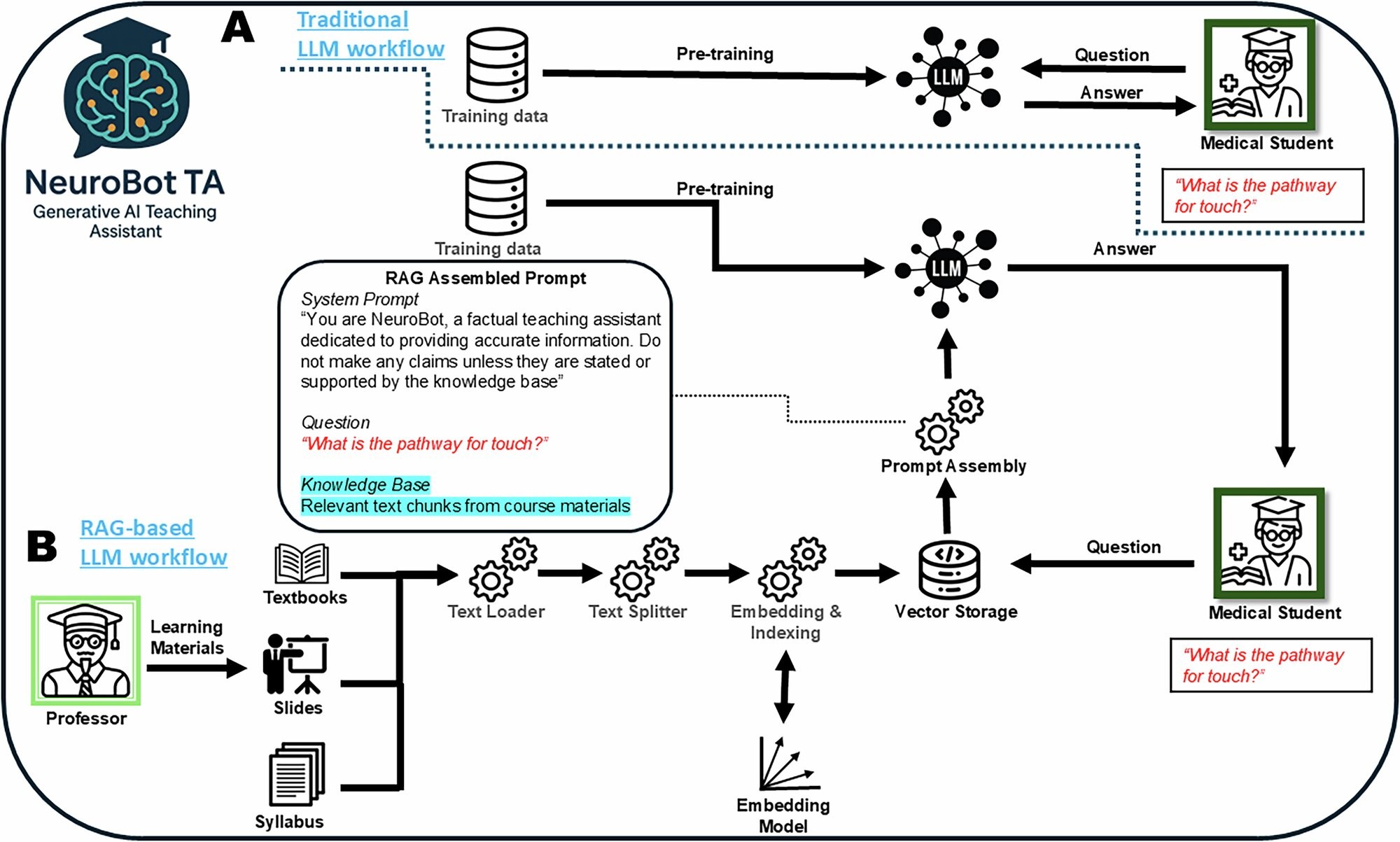A new study from Dartmouth College suggests that artificial intelligence (AI) has the potential to revolutionize education by offering personalized support tailored to individual student needs. This could be particularly impactful for institutions with limited resources, where access to individualized instruction is scarce.
The research, led by Professor Thomas Thesen and medical student Soo Hwan Park, focused on NeuroBot TA, an AI teaching assistant designed specifically for a neuroscience course at Dartmouth’s Geisel School of Medicine. NeuroBot TA uses a technique called retrieval-augmented generation (RAG). Unlike general chatbots that can hallucinate (generate plausible but incorrect information), NeuroBot TA draws its answers exclusively from vetted sources like textbooks, lecture notes, and clinical guidelines. This curated approach aims to build trust by grounding responses in reliable information.
The study tracked the interactions of 190 medical students with NeuroBot TA throughout the course. The results were encouraging: students overwhelmingly trusted NeuroBot’s knowledge base more than typical chatbots readily available online. Over a quarter of respondents highlighted NeuroBot’s reliability, speed, and convenience, particularly for exam preparation. Nearly half considered it a valuable study aid.
Why This Matters: The findings point to a significant shift in how AI can be used in education.
“This work represents a step toward precision education—the tailoring of instruction to each learner’s specific needs and context,” explains Professor Thesen.
He emphasizes that NeuroBot TA demonstrates AI’s potential to scale personalized learning while building student trust, especially in settings where traditional one-on-one tutoring is limited.
Challenges Remain: While promising, the study also highlights some hurdles to overcome. Many students primarily used NeuroBot TA for fact-checking rather than deeper exploration or discussion-based learning. Some expressed frustration with its limited scope, potentially pushing them toward less reliable but more expansive chatbots. The research team acknowledges a crucial concern: students often lack the expertise to distinguish AI-generated hallucinations from accurate information.
Looking Ahead:
Future iterations of NeuroBot TA will incorporate pedagogical techniques known to enhance understanding and retention, such as Socratic questioning and spaced retrieval practice. This shift aims to guide students toward active learning rather than passive information gathering. Thesen stresses the importance of fostering “metacognitive awareness” in students—understanding when AI is suitable for quick tasks versus deeper learning.
The study also underscores the broader potential of AI tools like AI Patient Actor, another platform developed by Professor Thesen’s lab. This tool simulates patient interactions, providing medical students with safe space to practice their communication and diagnostic skills. Already implemented in numerous institutions worldwide, AI Patient Actor exemplifies how technology can address resource limitations and provide practical learning experiences.
The Dartmouth researchers believe these AI-powered tools represent a significant step toward more accessible and effective personalized education, paving the way for future innovations that bridge the gap between individual learning needs and educational resources.
